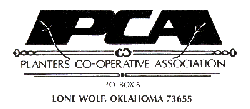| |
US Growth Likely Slowed Last Quarter 04/25 06:18
WASHINGTON (AP) -- Coming off a robust end to 2023, the U.S. economy is
thought to have extended its surprisingly healthy streak at the start of this
year, with consumers still spending freely despite the pressure of high
interest rates.
The Commerce Department is expected to report Thursday that the gross
domestic product -- the economy's total output of goods and services -- grew at
a slow but still-decent 2.2% annual pace from January through March, according
to a survey of forecasters by the data firm FactSet.
Some economists envision a stronger expansion than that. A forecasting model
issued by the Federal Reserve Bank of Atlanta points to a first-quarter annual
pace of 2.7%, propelled by a 3.3% increase in consumer spending, the principal
driver of economic growth.
Either way, the economy's growth is widely expected to have decelerated from
the vigorous 3.4% annual pace of October through December. The slowdown
reflects, in large part, the much higher borrowing rates for home and auto
loans, credit cards and many business loans that have resulted from the 11
interest rate hikes the Federal Reserve imposed in its drive to tame inflation.
Even so, the United States has continued to outpace the rest of the world's
advanced economies. The International Monetary Fund has projected that the
world's largest economy will grow 2.7% for all of 2024, up from 2.5% last year
and more than double the growth the IMF expects this year for Germany, France,
Italy, Japan, the United Kingdom and Canada.
Americans, who emerged from the pandemic recession with plenty of money in
reserve, have been spending energetically, a significant trend because
consumers account for roughly 70% of the nation's GDP. From February to March,
retail sales surged 0.7% -- almost double what economists had expected.
Businesses have been pouring money into factories, warehouses and other
buildings, encouraged by federal incentives to manufacture computer chips and
green technology in the United States. On the other hand, their spending on
equipment has been weak. And as imports outpace exports, international trade is
also thought to have been a drag on the economy's first-quarter growth.
Kristalina Georgieva, the IMF's managing director, cautioned last week that
the "flipside'' of strong U.S. economic growth was that it was "taking longer
than expected" for inflation to reach the Fed's 2% target, although price
pressures have sharply slowed from their mid-2022 peak.
Inflation flared up in the spring of 2021 as the economy rebounded with
unexpected speed from the COVID-19 recession, causing severe supply shortages.
Russia's invasion of Ukraine in February 2022 made things significantly worse
by inflating prices for the energy and grains the world depends on.
The Fed responded by aggressively raising its benchmark rate between March
2022 and July 2023. Despite widespread predictions of a recession, the economy
has proved unexpectedly resilient. Economic growth has come in at a 2% annual
rate for six straight quarters -- seven, if forecasters are correct about the
January-March GDP growth.
Hiring so far this year is even stronger than it was in 2023. And
unemployment has remained below 4% for 26 straight months, the longest such
streak since the 1960s.
"Overall, US economic activity remains resilient, powered by consumers'
ongoing ability and willingness to spend,'' said Gregory Daco, chief economist
at the tax and consulting firm EY. "A robust labor market, along with positive
real wage growth, continues to provide a solid foundation.''
Inflation, the main source of Americans' discontent about the economy, has
slowed from 9.1% in June 2022 to 3.5%. But progress has stalled lately.
Republican critics of President Joe Biden have sought to pin the blame for high
prices on the president and use it as a cudgel to derail his re-election bid.
Polls show that despite a healthy job market, a near-record-high stock market
and the sharp slowdown in inflation, many Americans blame Biden for high prices.
Though the Fed's policymakers signaled last month that they expect to cut
rates three times this year, they have lately signaled that they're in no hurry
to reduce rates in the face of continued inflationary pressure. Now, a majority
of Wall Street traders don't expect them to start until the Fed's September
meeting, according to the CME FedWatch tool.
|
|
